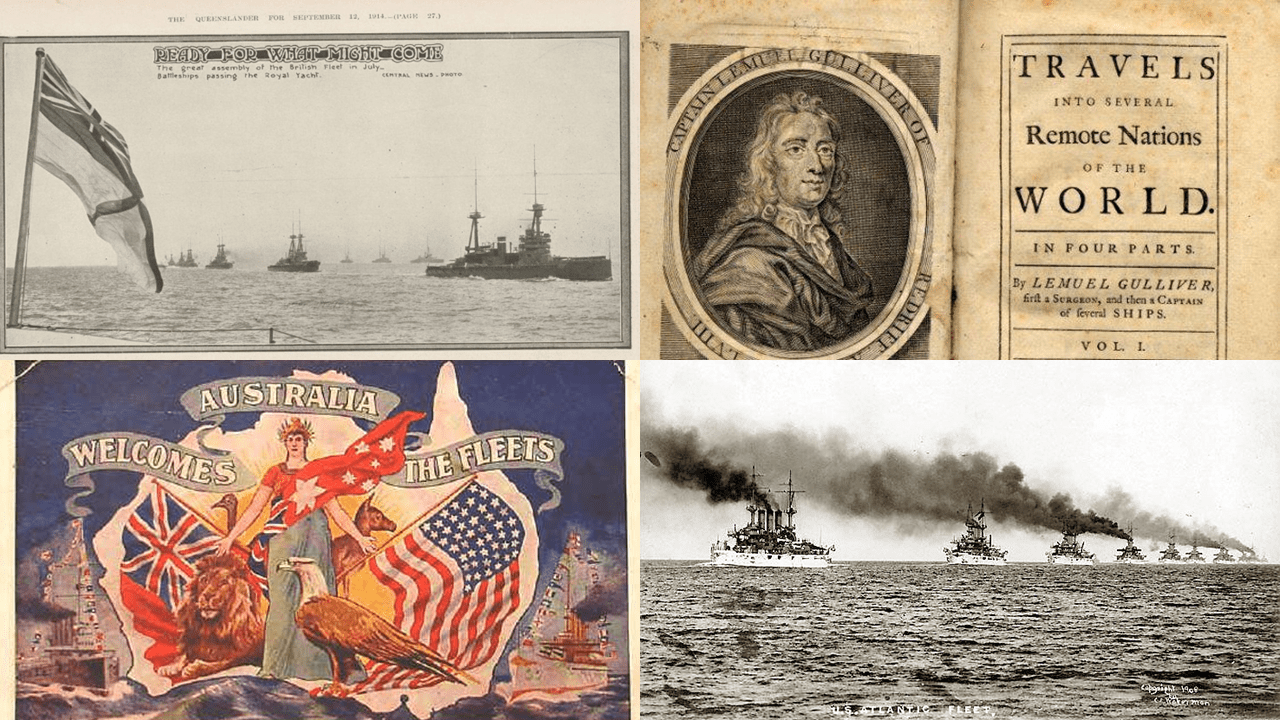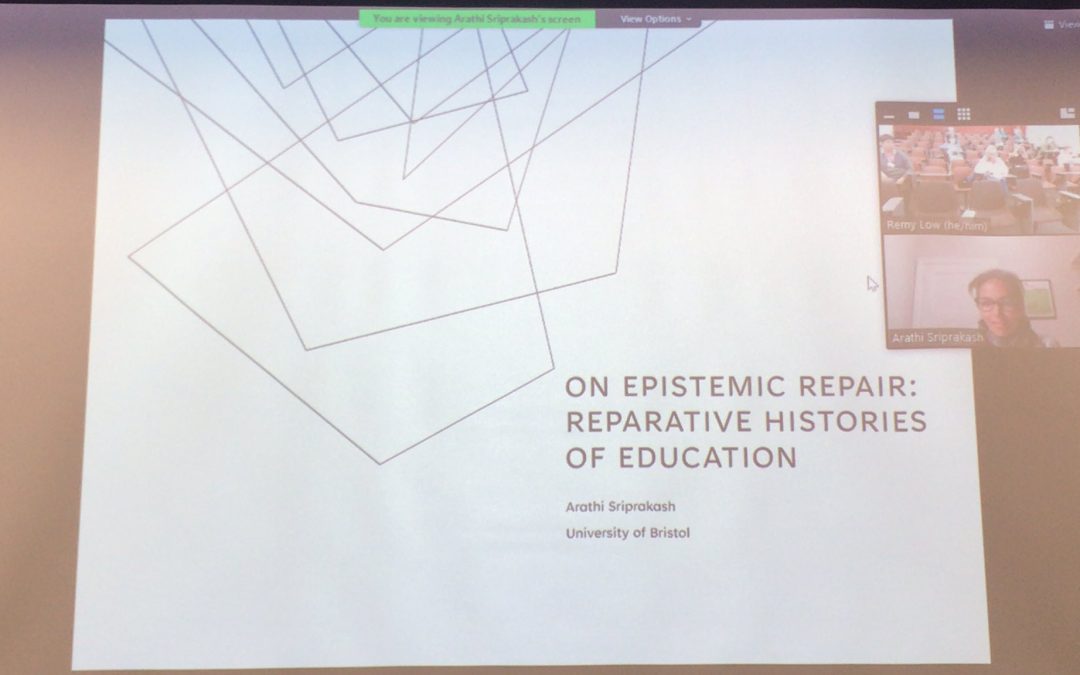
by Neville Buch | Apr 20, 2023 | Blog, Concepts in Educationalist Thought Series, Concepts in Public History for Marketplace Dialogue, The Importance Of History In Our Own Lives?
“Still, universities continue to churn out a supply of PhDs far exceeding the academic market’s demand for them. About 70 percent of all professors are not in tenure-track positions. Only 27 percent of those who received history PhDs in 2017 were in tenure-track jobs in 2021.” …
“Covid-19 intensified a [declining enrolment] trend, underway for a decade before the pandemic, of college enrollments declining about 1 percent a year. And an ancillary benefit of today’s sizzling job market is that many young people are beginning useful careers. This, instead of slouching, bored and sullen, at the back of lecture halls not to acquire knowledge or even marketable skills but a bachelor’s degree, a credential of increasingly dubious value.”
George F. Will, in his opinion piece in The Washington Post, ‘As enrollment plummets, academia gets schooled about where it went wrong’ (April 19, 2023 at 7:00 a.m. EDT), illustrates the stupidity in the way persons think, today, about Higher Education policy and the market economy. Foremost that higher education is about the market economy, in that the market economy produces the education required as ‘education’ (mythologically). It is does not. It is almost a classic truism that the market economy is stupid, and yet we still have policy fools talking about education in market economy terms.

Image 1: Collage of Images as (left to right, top to bottom):
Vision, education people concept – displeased red haired teenage student girl in glasses and checkered shirt l showing thumbs down over grey background. Photo 143161962 © Syda Productions | Dreamstime.com
Girl sleeping with holding a sign with the word Help. Photo 134669606 © Sevak Aramyan | Dreamstime.com
A close up shot of a little boy at school who looks distant and upset. Photo 57218706 © Liquoricelegs | Dreamstime.com
Grunge image of a stressed overworked man studying. Photo 39431170 © Kmiragaya | Dreamstime.com
Stressed college student for exam in classroom. Photo 68713779 © Tom Wang | Dreamstime.com
Worried young woman using laptop, teenager feeling nervous passing online exam or distance graduation test on web, f grade, anxious girl stressed by bad news in email, biting nails, looking at screen. Photo 101334378 © Fizkes | Dreamstime.com
The market economists do not care about education. Before getting their plum jobs, they were the young fools, “… slouching, bored and sullen, at the back of lecture halls not to acquire knowledge.” Will refers to ‘a credential of increasingly dubious value’, but I doubt he carefully read Randall Collins’ The Credential Society: An Historical Sociology of Education and Stratification (Columbia University Press, 2019). The issue of credentials is not substantial jobs for the population but for a select few. This is the point of “Only 27 percent of those who received history PhDs in 2017 were in tenure-track jobs in 2021”. It is a selection of an elite by government and the social establishment via the pulling levers in the brainless “market economy”.
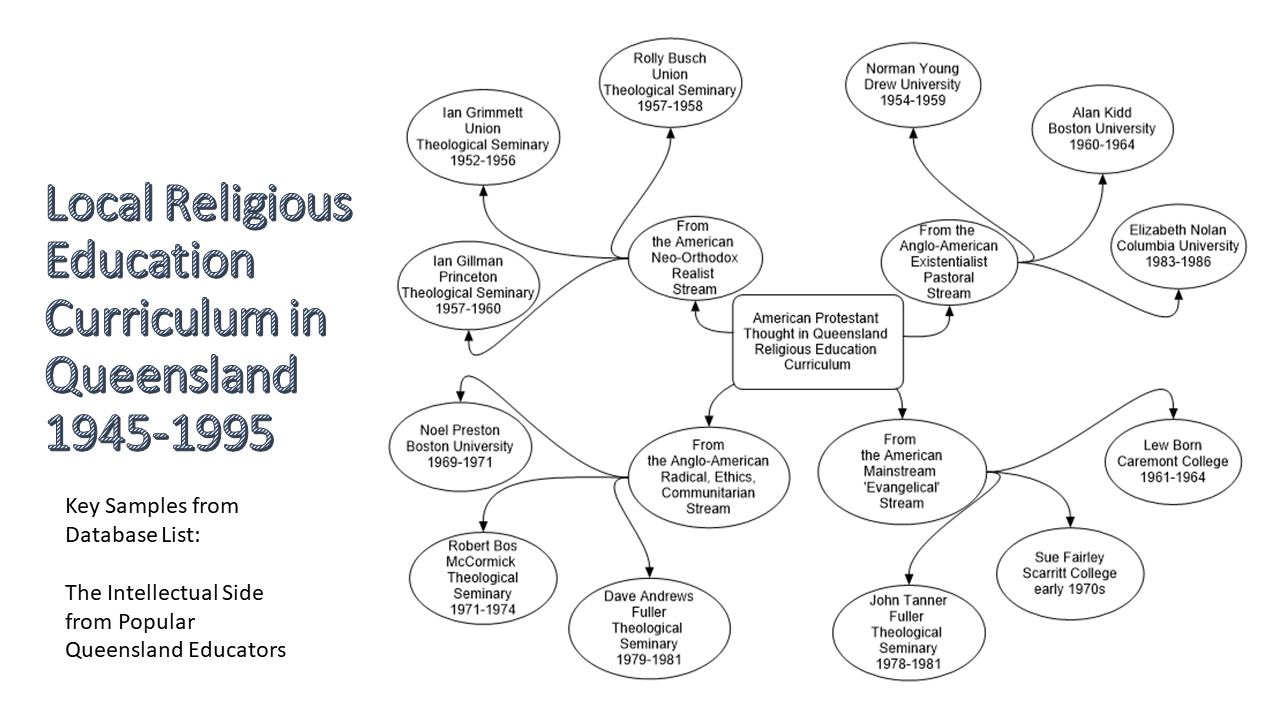
Image 2: Dr Neville Buch’s mostly unpaid work in the History of Religious Education (small example).
But what does this mean for the wider population? Mass ignorance. The effect of “Only 27 percent of those who received history PhDs in 2017 were in tenure-track jobs in 2021” is the loss of public knowledge. Since the elite declares that the majority of PhD graduates cannot be employed, whole fields of learning are scraped from the curriculum; and remember the numbers are already the elite. These are fields which once were thriving and the only reason that they are scraped are decisions about higher education policy. It is not merely mass education which suffers, but culturally the elite education. The thinking goes: we have less in the university budget, so we will scrape the approach of full and comprehensive education in the humanities and social sciences and prioritise our investment in STEM or STEAM. Fuck you, the humanities and social sciences. Fuck you, full and comprehensive education.
\
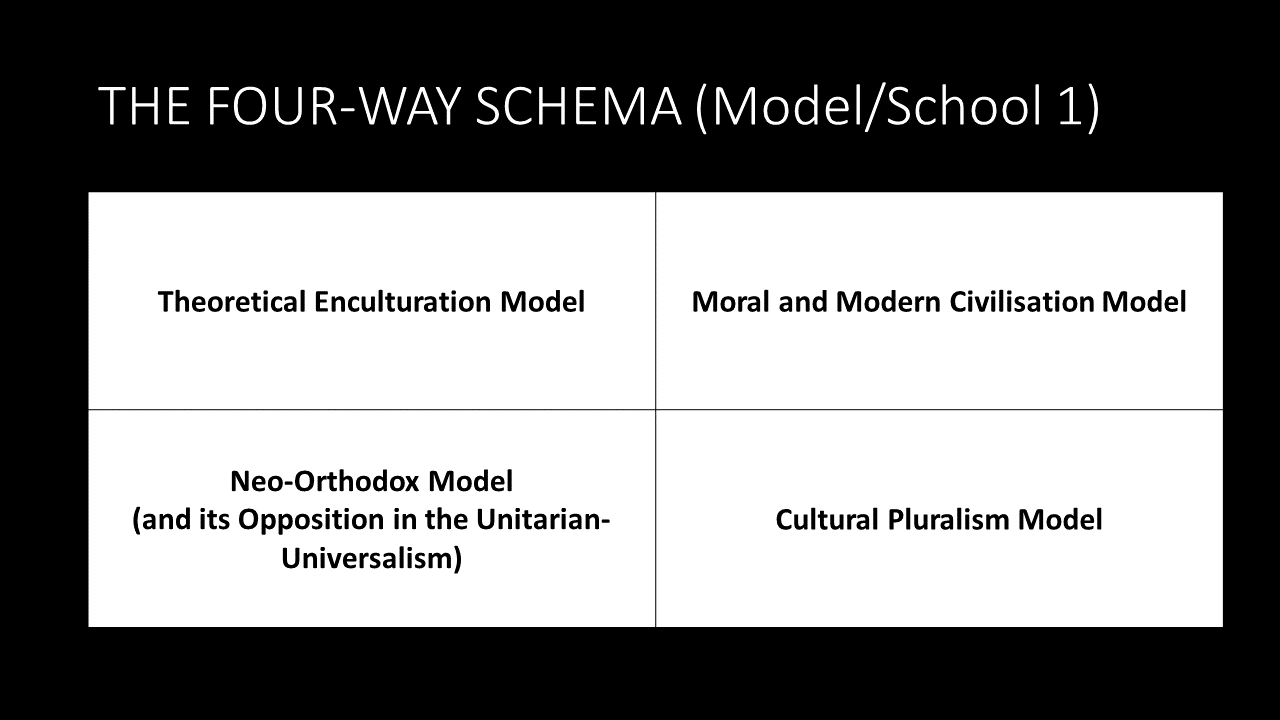
Image 3: Dr Neville Buch’s mostly unpaid work in the History of Religion and Theological Education (small example).
I ask the Australian population, do you care that you are ultimately being made stupid?
Image 4: Example of work among Ph.D. ANZHES colleagues
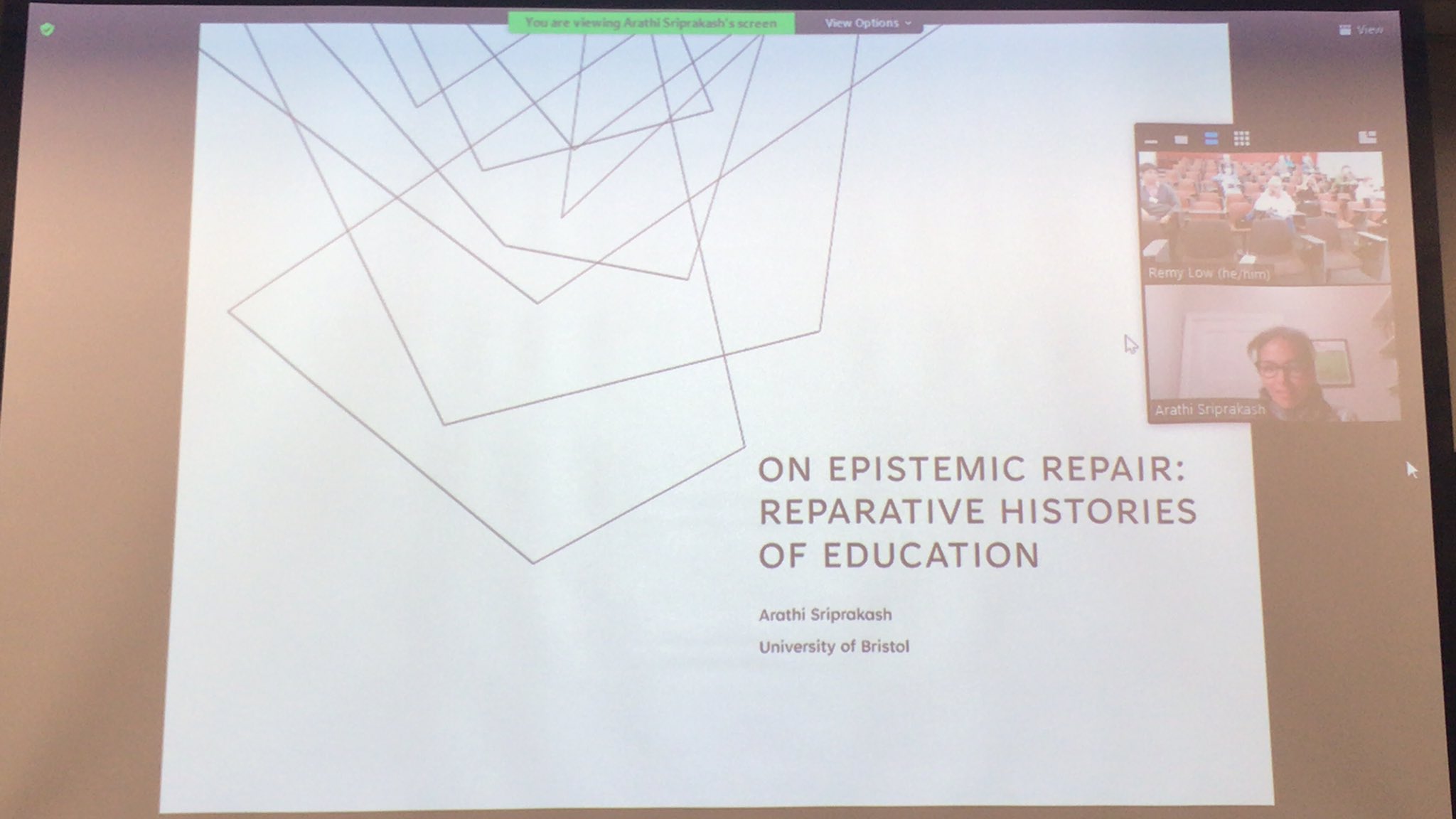
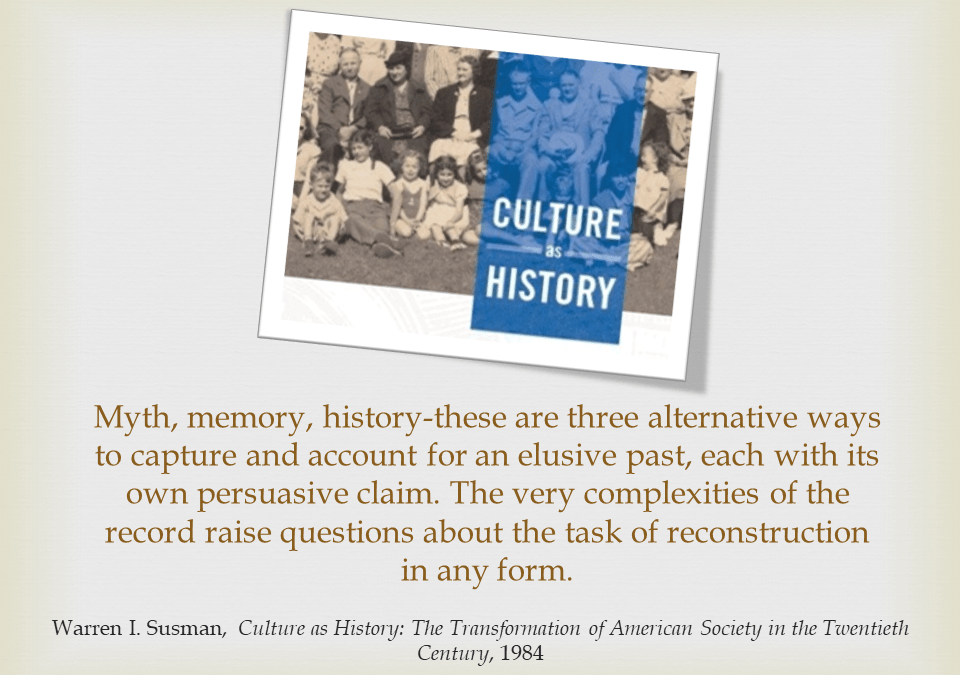
by Neville Buch | Jul 5, 2023 | Article, Blog, Concepts in Educationalist Thought Series, Concepts in Public History for Marketplace Dialogue, Concepts in UQ Philosophy and History, Intellectual History, The Importance Of History In Our Own Lives?
On sending out an article from The New York Times, on how a lawsuit filed by the attorneys general of Missouri and Louisiana claimed the American Federal administration was trying to silence its critics on social media, a dear friend asked me, “Isn’t free speech part of their constitution?”
“Free speech” is not part of the written constitution, American, Australian, or otherwise. This fact also relates to misinformation on The Voice referendum. Free speech is inferred in statements from constitutions. No constitution states in black-and-white: “all citizens have the right to speak.” The capacity to speak to government, to the state, is never guaranteed, and is only granted on the charitable reading of the powers-that-be.
Then there is the further problem, which persons rarely think about. Say, I can speak to government, the state, and indeed the public, on the public square, the critical state of affair is, am I heard? Is my message accepted, and if accepted – it is acted upon, and if not accepted – there is openness to a dialogue where I have the opportunity to convince of the importance of my message.
The latter problem is the battle of my life and career, not the issue of “free speech” rhetoric which too-often only confuse the potent issues. Currently, I find that I am not heard by the Brisbane City Council, the Queensland State Government, and my colleagues as university historians looking at the Brisbane-Queensland scoping. In the latter grouping are colleagues from New South Wales, Victoria, and occasionally South Australia, and maybe on rarer occasions: Tasmania, Western Australia (memories of Geoff Bolton), and the Northern Territory. In these cases of the academics, there is the failure to truly to hear my existential message as a person whose critically reflective personal history in, and with, Queensland-Brisbane goes backs to 1961. The latest effort was my Wither Local History paper at the 2023, 50th anniversary, Australian Historical Association conference, yesterday afternoon (4 July 2023; a prominent anniversary for dialogue for free speech in a national context).
However, perhaps, I am being heard? Then there is a third problem – am I understood? The point that I made in the verbal presentation, off-cuff, yesterday, at the session, called “Bicentenaries, Centenaries and Semicentenaries”, is that my work is internationalised with references to the thinking of Wilhelm Dilthey (1833-1911), Patrick Geddes (1854-1932), Marc Bloch (1886-1944), Karl Mannheim (1893-1947), Lewis Mumford (1895-1990), Emmanuel Levine (1906-2003), Paul Ricoeur (1913-2003), David Lowenthal (1923-2018), Bernard Williams (1929-2003), Randall Collins (1944-) and Allan Megill. These are the international critical thinkers of the 20th century who have shaped my multidisciplinary thinking of local-regional scoping. They come with insights from historiography, several sub-fields of sociology, and several important fields of philosophy. These insights are multidisciplinary without eroding the disciplinary principles across the fields. They are insights from educationalists on curriculum, and, in particular, coming from higher education policy critics (such as me). We, the educationalist critics, have been saying for decades, that obsessive academic specialisation, and it’s insane political attitudes, is killing education and knowledge production. It is the very opposite of creativity and innovation, and yet we have been ignored in policy by councils, states, and all kinds of governance – simply because the powers-that-be never read a solid and comprehensive book on the critical decisions that they are making. At the roundtable session of the Australian Historical Association, called “Beyond Academia: Historians Working in the Public Service”, there was no representative in the municipal space.
Most of these global thinkers are dead white males, but, if they remain forgotten, we are dooming our thinking in forgetting half of ‘gender’ (or there abouts) in our cultures, as were women are forgotten and hidden. Our obsession with gender issues can obscure our thinking and understanding other important historical themes; that is a criticism of both sides of the binary politics. Generally, the public, Council bureaucrats, Council politicians (yes, politicians, not merely councillors), State government bureaucrats and politicians, and university historians do not understand the international outlook in the local-regional studies. If they did, we would still have the local studies unit at the University of Queensland.
Rather, today, the state of affair (a critical term in the philosophy discipline) is that I am marginalised, yes, 1) well able to speak, but 2) unheard, or 3) not understood. The state of affair is that, over my career, I struggled in these three ways, as a multidisciplinary learner and teacher, who lost the other love of his life (28 years), who I had promised decades ago that I would have steady employment in our lifetime. The state of affair is that I am eating up superannuation to invest in a well-needed field of community education that the powers-to-be are ignorantly or arrogantly uncaring about. The state of affair is that the powers-to-be in council, state government, and the university, in either contracting or employment, do not 1) speak openly and honestly on these issues, 2) heard the voices of the dispossessed, and 3) not engage in dialogue for understanding, and 4) act to change the state of affair.
Featured Image:
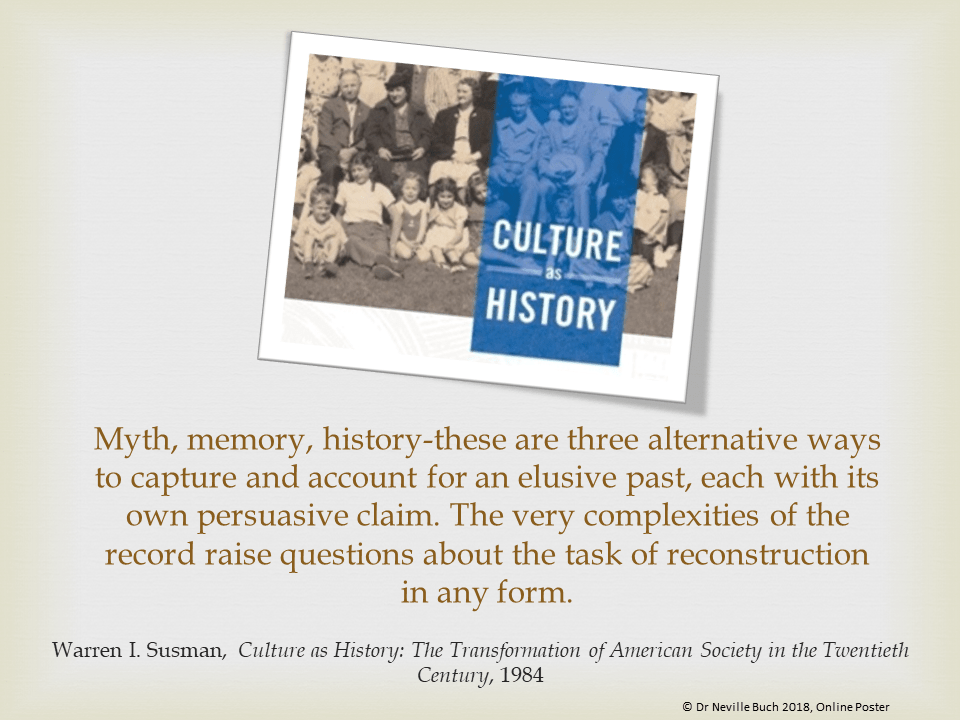
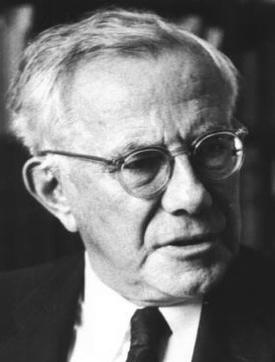
by Neville Buch | Apr 12, 2024 | American-Australian Relational History, Article, Concepts in Educationalist Thought Series, Publication
Paul Tillich, in 1944, spoke to the history of Existential Thought (attached below). Incredibly, it is exactly what I have stated in the one paragraph below. It is what I have been saying for the last two years, for those who I have sought attention from, and I have been treated like shit with their silence (I explain this below). The idiocy of political decision-makers, setting rationalism against existential thought arguments, in (attempting-but-falsely) legitimate corrupt thought patterns of politics.
After this striking emergence of Existential philosophy in the fifth decade of the nineteenth century, the impulse of the movement subsided; it was replaced by Neokantian idealism or naturalistic empiricism. Feuerbach and Marx were interpreted as dogmatic materialists, Kierkegaard remained completely unknown, Schelling’s latest period was buried with a few contemptuous sentences in the textbooks on the history of philosophy. But a new impulse to “Existential” thinking came from the “Lebensphilosophie” or “Philosophy of Life” of the eighteen-eighties. During this decade appeared Nietzsche’s most important works. In 1883 Dilthey published his Einleitung in die Geisteswissenschaften; Bergson’s Essai sur les Donnees Immédiates de la Conscience came out in 1889. The “Philosophy of Life” is not identical with Existential philosophy. But if we understand the latter in a larger sense — as for historical and systematic reasons we must — then the “Philosophy of Life” includes most of the distinctive motives of Existential philosophy. Accordingly, I should also assign certain features of pragmatism, especially of William James’ thought, to this philosophy of Existence as immediately experienced.
The third and contemporary form of Existential philosophy has resulted from a combination of this ” Philosophy of Life ” with Husserl’s shift of emphasis from existent objects to the mind that makes them its objects, and with the rediscovery of Kierkegaard and of the early developments of Marx. On the one hand Heidegger’ and Jaspers, on the other the Existential interpretation of history found in German “Religious Socialism,” are the main representatives of this third period of the philosophy of experienced Existence.
Tillich then goes onto to provide his own Neo-Orthodoxy Christian realist approach in the new stage (as it then was) of Existential Thought, But, the American culturally-designed political realism, as described by Tillich, does not save those rationalised stupidity of those set political rationalised arguments against existential-based solutions from being anything but intellectual stupidity.
In the third and late 20th century form of Existential philosophy, Tillich first examines the methodological foundations of the philosophy of essentia and existentia. The key thought here is “The Unconditioned cannot be conditioned by a difference between its essence and its existence.” Tillich examines Hegel’s doctrine of essence and existence. The key thought here is that (from Hegel):
“Essence necessarily appears.” It transforms itself into existence. Existence is the being of essence, and therefore existence can be called “essential being.” Essence is existence, it is not distinguished from its existence.
This does not help the political decision-makers at all in their rationalisation. Tillich then moves to the third step. The argument against the rationalisation is girted by both the post-Hegelian philosophers and the phenomenologists. It is a compatibilist set of different solutions among the inclusive set of existential philosophers. The key thought that the thinkers falsely claimed in the political rhetoric: “Nature is the fall of the Idea,” which is the underlying philosophy of politicians in thinking “a real, non-dialectical event, or [“his”; such] terminology is meaningless.” Of course, Tillich pointed out that as a fallacy, not merely via Marxism but of the whole history of continental philosophy, very much including anti-Marxist political stances (that last comment is for the “dickheads” who still want to aggressively wage culture-history warfare; have you ever had a boss who spoke in such language as the “dismissal“: meaning a comment which indicates no understanding of the precise issue at hand? Fortunately, I have not, but I am underemployed, not contract, or unemployed in the present…no opportunity in the present, and was not the case in the past…I had intelligent employers).
Tillich then (fourth step) explains the political/philosophical “philosophy of essence”. His fifth step tells why the political “a priori empiricism” fails when troubled, and after failing at the rationalisation of “sense empiricism”. Tillich legitimatises the metaphysics but not the populist, and, stupid-thinking, the simplistic empiricism.
To escape the stupidity, Tillich then describes the methodology of “The Existential Thinker” (sixth step): passion and ideas. The twist, which must not be so simplistically misunderstood by the political decision-makers in Feuerbach’s own projection thought:
“Do not wish to be a philosopher in contrast to being a man . . . do not think as a thinker. . . think as a living, real being . … think in Existence.” Love is passion, and only passion is the mark of Existence.” In order to unite this attitude with the demand for objectivity, he says: “Only what is as an object of passion-really is.” The passionately living man [let’s say “person”, Feuerbach-Tillich] knows the true nature of man [let’s say “person”, Feuerbach-Tillich] and life.
And then Tillich come to the real challenge for all of us (including myself):
“The Existential thinker cannot have pupils in the ordinary sense. He cannot communicate any ideas, because they are just not the truth he wants to teach. He can only create in his pupil by indirect communication that ‘Existential state’ or personal experience out of which the pupil may think and act. Kierkegaard carries out this interpretation for Socrates. But all Existential philosophers have made similar statements-naturally, for if the approach to Existence is through personal experience, the only possibility of educating is to bring the pupil by indirect methods to a personal experience of his own Existence.’ [emphasis added for those Queensland educationalist political decision-makers who are “slow” at reading, and not in the sense of David Mikics’ Slow Reading in a Hurried Age (2013); Mikics is actually saying what I am talking about as a criticism of the slow reading of Queensland educationalist political decision-makers]
Yes, the political decision-makers refuse to contract or employ me because it is not in their personal experience to do so. They are politically and mentally stuck.
Thus, Tillich comes to his final two section with another set of key thoughts on the:
- existential immediacy and the subject-object distinction,
- Psychological and ontological concept,
- the principle of Finitude,
- time as “Existential” or immediately experienced, and Time as measure,
- History viewed in the light of the future,
- Finitude and estrangement,
- Finitude and loneliness.
This is too much for “amateur” politicians to read. But one point I will make here. From Heidegger, Tillich states: “Temporality is the genuine meaning of Care,” and Care is finite Existence. This is the very point I have been making the last few years, and where I have been treated like shit in the silence of the political decision-makers:- if I have to spell it out: there is a refuse to acknowledge the truth of my “very point”; no communication, no communicative action. In their individual minds they think of something by which to dismiss me as a person, and dismiss my criticism, by failing to admit to themselves that they (each) do not understand (Verständnis).
What Tillich argued in 1944 is what I been saying 2019-2024. In his concluding remarks, Tillich says:
- This unity can be described in both negative and positive term;
- What all philosophers of Existence oppose is the ‘rational’ system of thought and life developed by Western industrial society and its philosophic representatives;
- If the experience of this level of living is ‘mystical,’ Existential philosophy can be called the attempt to reconquer the meaning of life in “mystical” terms after it had been lost in ecclesiastical as well as in positivistic terms. [This is Tillich’s key theological argument, but it can be accepted as a ‘secular’ metaphysical argument];
- Historically speaking, the Existential philosophy attempts to return to a pre-Cartesian attitude, to an attitude in which the sharp gulf between the subjective and the objective ‘realms’ had not yet been created, and the essence of objectivity could be found in the depth of subjectivity-in which God [let’s take that as a metaphor, Tillich] could be best approached through the soul [let’s take that as one of Charles Sanders Peirce‘s signs]; and
- It is the desperate struggle to find a new meaning of life in a reality from which men [again, Tillich, persons please] have been estranged, in a cultural situation in which two great traditions, the Christian and the humanistic [let’s say all institutional systems, Tillich], have lost their comprehensive character and their convincing power.
******
Tillich, Paul (1944). Existential Philosophy, Journal of the History of Ideas, Vol. 5, No. 1 (Jan., 1944), pp. 44-70
NOTE: If you’re unhappy about receiving the series of posts. All you have to do is 1) immediately offer me a paid contract and keep that promise, or 2) agree to have a lunch meeting with me, and carry-out the said lunch meeting to discuss any and all of these issues. The third option is up to you to propose.
Featured Image: Paul Tillich (1886-1965)

by Neville Buch | Jun 1, 2017
…food not meant for them! Once, when her parents were busy milking, Ruth disappeared. There was much calling out and racing around searching, before she was found, fast asleep on…
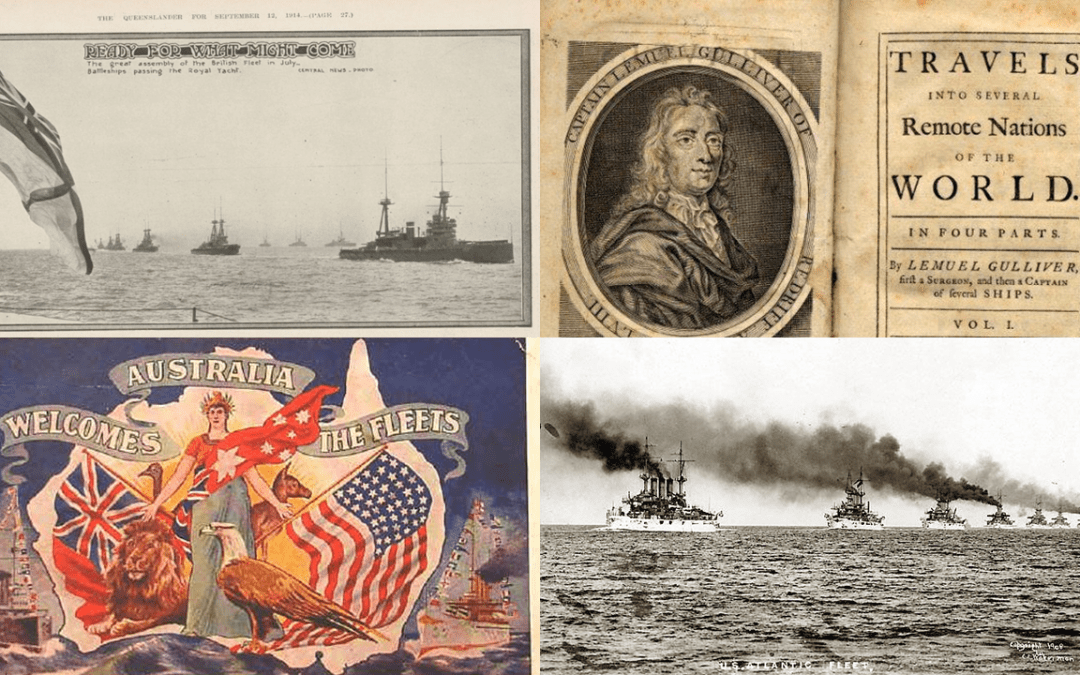
by Neville Buch | Feb 15, 2024 | Literature (Fiction), Mapping Brisbane History
Swiftian Dream: Types of Invasion Fears
It must have been 3.15 a.m. or so. I was on the street near the water, a little way up the small hill. The noise first made me aware that something was happening. A few shots and shouts. From the sounds I could tell it was no drunken brawl. I was there only because I had awoken at around 2.00 a.m., unable to sleep and not able to drift back into the comfort of a dream. Now, I seemed to be in a dream awake. The moment was when everything turned to ashes in the mouths of many, but for me I was already tired with life. While I was surprised by the moment itself, I could see it coming for a long time. I was aging widower who had played the role of a prophet in the wilderness. A nobody but an author of local history.
It was by accident that I witnessed the moment. I was an alcoholic and I was on a self-confined retreat at Wynnum, Queensland. “It has been 110 days, six hours, since my last drink.” My name is unimportant. I am narrator of my own story. I say, “was an alcoholic”. Looking back to the “Friendly Invasion” moment, although tired of life, the occasion shocked, all of us, out wanting anything than to be sober. In the early century people complained about something called the “Woke” movement, and it seems no one can recall what that was about. Nevertheless, being awake became a necessary survival tactic since that first early morning.
Concerned at hearing gunfire, but with the pull of insane curiosity, I eased myself down the street to the esplanade. Across, and thru the clearing, I saw hundreds of rubber dinghies with the soldiers of the “Friendly Invasion”, as the historical occasion become propagandised a decade later. At the time it had been, simply, the 150th anniversary of the Great White Fleet. That is how it started. In the late previous century, I had been writing about such acts of cultural colonialism, but that was another era. We had all forgotten, even the local historian. The Great White Fleet had originally never appeared in Moreton Bay, but it seemed a benign commemorative visit from our best-but-strange ally.
Ever since that history-breaking election of 2024, and the regime of the Patron MAGA dictators, Australia seemed to drift back to being a 21st century colonial outpost, as the scholars today discuss such things. The population, as usual, never noticed such things; unless you were at the receiving end of such policies. For a century and half, the invasion fears were planted in the Asian world. Vague memory recalled the late Bill Metcalf and his long nineteenth century history (1801-1919), talking of the local fall and rise Antipodean Utopia; more as a dystopia from a late twentieth century (1975-2000) perspective. It was a different world. Indonesia, the great invasion fear of the 1990s, now had collapsed into civil war and anarchy. China, the other invasion fear of the long twentieth century (1920-2019), came close, but, in the end, the economic cost of its military and cultural colonial expansion meant, creating a peace pact with the first of the Patron MAGA dictators, the esteemed Donald Trump. Although it came late in the Trump’s term of office, before handing over the reins to the esteemed son, the peace with China held these many decades. Russia also imploded with the new geopolitics. Other regimes followed the pattern. North Korea had been such a great ally to the Trump nation that its dynastic model was adopted for our “friendly ally”, which has now saved us in the era of Australia’s national emergency. Still that first day was an initial shock.
In that early morning, I was a local witness of Australian history changing. The commemorative fleet had launched military landings on our shores from the bays of capital cities. Parliament had been sinking into chaos for some time, and we needed “a friend” to save us from ourselves politically, although that was initially a military operation. Still, after nearly a decade, we wonder when the troops will leave and return to their home country. I recall the first shock. Units of soldiers walking the streets and setting up checkpoints. I found the courage to walk across the esplanade and to the shoreline, but nevertheless hiding my presence. I heard the few shots but I saw no death. Soldiers were so casually wandering off the sand and mud to the grass gathering points, and being given their orders, headed up the streets, more in a swagger than as an invasion force. At this stage of the “Friendly Invasion” there was no resistance movement. Australians had their fill of witnessing global violence since the Great Gaza War. We were always a freedom-loving people but we were very serious in asking the question, “What cost Freedom?” We were not like the nation of the Patron MAGA dictators, always celebrating the violent revolutionary past.
In my Australian caution, still unsure what I was witnessing at the time, I crept into a large Moreton Bay mangrove. In the dark, but enlightened by the ships’ searchlights across the landing sites, I saw a single sentry guarding the empty dinghies, the water lazily lapping up to his boots, on a patch of sand in the middle of mud and dark waters of the Bay. I was nervous he would see me, and kept still. A few minutes later his torch flashed onto me in the midst of the branches. I am sure he saw me, even as he pretended not to. Years later it made more sense, it was a “Friendly Invasion.” We were in a world of pretence. Each of us had a role to place. I trembled, frozen, an old man crouching in the mangrove, and, “my friend”, six or eight metres from me, glad he was on sentry duty and being entertainment for that old man in the strange tree. The solider was in a state of peace, not having to walk up into the street, where dangers lurked.
After a good hour the scene unexpectedly changed. Another wave of dinghies hit the shores, not with soldiers, but parties of unusual-looking civilians. They reminded me of an ancient film, when a such thing existed, of impoverished migrants arriving to the country. They did look friendly but their presence was a mystery. The behaviour of the single casual sentry gave me the assurance I could go over to these new non-combatant arrivals, gathering on the grass. They were happy to see me, and the soldiers organising them on the esplanade were out of sight. Amongst a large gathering we had the compassionate and kind chats. I found out that night that the military, of our friendly saviours, did not trust our own service class, and these were working-class migrants of their own: the military’s trusted provisions in keeping soldiers comforted – food service, household duties, and, of course, sexual favours.
As I was chatting, I thought I was having a Dreamtime vision. A man who was to become a great mate in these years, appear to fall out of one of the houses aligning the esplanade. I soon realised he did not fall, but scramble out of the window very fast and crept up to us. He had seen me come up and mingled with the crowd of strangers, and when the attention of the soldiers guarding the migrants turn in another direction, he made with haste to welcome the visitors. He was a Turrbal man. Still very dark in the appearance thinking after these many centuries. In such a shock the two of us became as Australians one, we bonded immediately in this era of the “Friendly Invasion”. Uncertain how things were to turnout, and gleaning information from the service migrants, Tom and I forged a plan. As, I, a very old widower with most of my family past and my daughters living overseas, and, Tom, a very recent divorcee and most of his mob in other places, had an opportunity for a radical turn. We decided to pretend to be members of the service migrant party which had just landed. We were pretty good at one of the regional accents. Black or White, it did not matter. We could act the part of any patriot.
So, it has been several years working in the migrant-run military kitchen. The staff is friendly with me, an elderly man of an uncertain age, in better health than he ought to be. Even the libido is there, just sitting there; like I had been sitting there, many days ago, in a mangrove, alert-but-calm. Ready. Just thinking about it I am aroused. But I am too old, and these days there is no romance generally. We all too tired. The young barely make it into performing sex. There is rarely bromance as well. Tom and I are good mates, but even so, our worlds are too far apart to be close. It was and always be in the cultural outlooks. Nevertheless, in days of the “Friendly Invasion”, it is good to have peace. The early 21st century era of the culture-history warfare had long gone. Today we just have invasions.
Featured Images: top to bottom, right to left.
- Page 27 of The Queenslander Pictorial, supplement to The Queenslander, 12 September 1914. (2014). John Oxley Library, State Library of Queensland.
- Gullivers_travels.jpg (602 × 500 pixels, file size: 75 KB, MIME type: image/jpeg), https://commons.wikimedia.org/wiki/File:Gullivers_travels.jpg;
- A 1908 Australian postcard welcoming the American ‘Great White Fleet’ to Australia. https://en.wikipedia.org/wiki/Great_White_Fleet#/media/File:Australia_Welcomes_the_Fleets.jpg
- Kansas sails ahead of Vermont as the fleet leaves Hampton Roads, Virginia, on 16 December 1907. https://en.wikipedia.org/wiki/Great_White_Fleet#/media/File:Us-atlantic-fleet-1907.jpg
